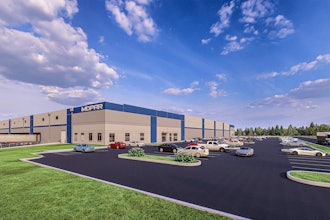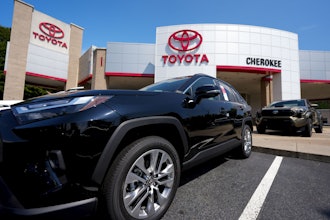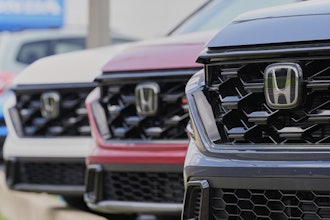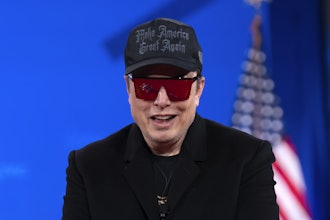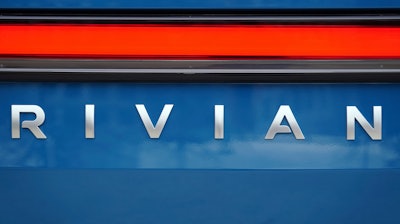
Electric vehicle maker Rivian is setting aside its planned partnership with Mercedes-Benz to produce electric vans in Europe so that it can focus on its existing commercial and consumer business.
READ MORE: Mercedes-Benz Plans $1.4 Billion European E-Van Plant
California-based Rivian said Monday it was putting on "pause" the memorandum of understanding that was signed between the American and German companies in September. That agreement called for a joint-venture European factory that would produce vans for both companies.
"We share the same goal as Mercedes-Benz Vans, to help the world transition to electric vehicles, and we look forward to exploring opportunities with them at a more appropriate time for Rivian," CEO RJ Scaringe said.
The companies had been looking to produce two large vans, one based on VAN.EA, the electric-only platform of Mercedes-Benz Vans, and the other based on the second-generation electric van, Rivian Light Van platform.
Mercedes-Benz Vans said it will continue to move forward with its own electrification strategy and ramp up production at its first dedicated electric van plant in Poland.
"Exploring strategic opportunities with the team at Rivian in the future remains an option, as we share the same strategic ambition: accelerating the EV adoption with benchmark products for our customers," said the head of Mercedes-Benz Vans, Mathias Geisen.
About two years ago, Amazon announced it would buy 1,800 electric delivery vans from Mercedes-Benz. That was one year after Amazon, founded by Jeff Bezos, took a 20% stake in Rivian.
Amazon also ordered 100,000 delivery vans from Rivian and said in September that some of the unique, whale-like vans were already on the road making deliveries, with thousands expected to be running in major U.S. cities by the end of the year.
Within days of becoming a publicly-traded company last year, Rivian briefly rocketed past Ford and General Motors in market capitalization as investors eager to get in on a fast-growing EV manufacturer gobbled up its stock.
It was given $1.5 billion in incentives this year to build a 7,500-job, $5 billion electric vehicle plant east of Atlanta. It hopes to begin production at the plant in 2024 with the goal of producing 400,000 vehicles annually in Georgia.
Rivian has long since lost its title as the second-most valuable U.S. car company behind Tesla. Global markets, including the U.S., have tumbled this year on larger, macro anxieties fueled by persistent inflation that has moved the Federal Reserve raise interest rates to their highest level in more than a decade. High-growth, or potentially more risky companies, have suffered the most.
Shares of Rivian Automotive Inc. slipped 2% early Monday and have plunged 74% this year.
In October, Rivian recalled almost all the vehicles it has delivered to customers — about 13,000 at the time — in order to tighten a loose fastener that could potentially affect drivers' ability to steer.














